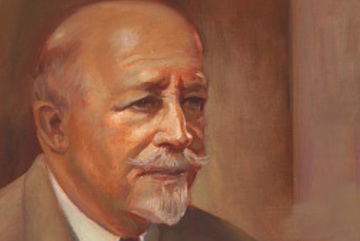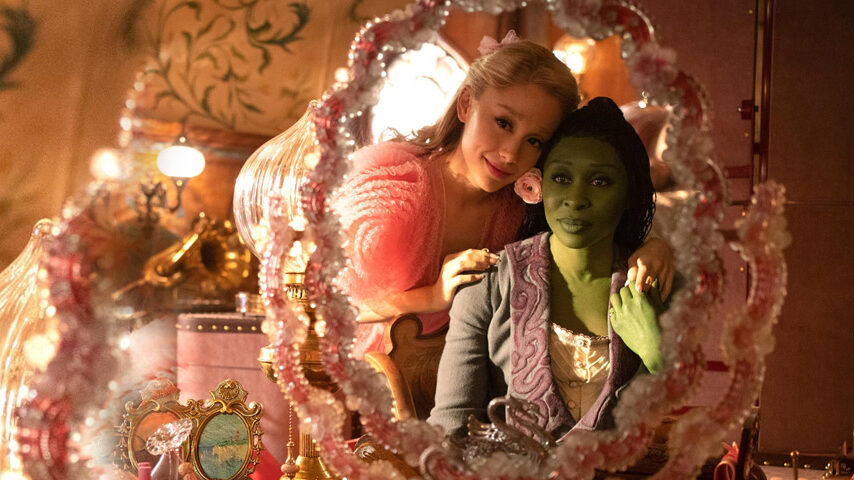W.E.B. Dubois: His observations on primacy of color remains spot-on nearly 120 years later. Photo: Wikimedia Commons
“The problem of the twentieth century is the problem of the color line” wrote W.E.B Dubois in 1903 in his opus magnum “The Soul of Black Folk”. This prescient observation by one of the greatest thinkers of the twentieth century America, has stood the test of time.
The book is a compilation of essays on the lives and circumstances of Blacks in America. His oft quoted “color line” did not confine itself to the Black experience in America but also included all people of color as the next sentence indicates- “…the relation of the darker to the lighter races of men in Asia and Africa, in America or the islands of the sea”. He draws attention to the proclivity of white supremacy and capitalism to dominate, colonize and exploit people of color. Even Dubois could not have imagined however that the color line would continue to bedevil the global body politic past the twentieth century.
The mass protests in the summer of 2020 in the U.S. and around the world in the aftermath of the sadistic murder of George Floyd by police officer Derek Chauvin and his colleagues in Minnesota underscores the relevance of Dubois’ deep sociological and political rumination. The corona virus pandemic also brought into sharp focus the gross socioeconomic and health disparities that we had always known existed, again the color line being the determinant factor for the glaring disparity.
The war in Ukraine has added a new dimension to the pernicious systemic racism in that it laid bare for all to see a color-based value assignment to human life by the white power structure in North America and Europe. The veteran CBS news correspondent Charlie d’Agatha reporting from Kyiv set the tone as to how the war was to be perceived and understood and how people were supposed to reacted to it. He said “Ukraine isn’t a place, with all due respect, like Iraq or Afghanistan—this is a relatively civilized, relatively European…” country, suggesting the less “civilized” Iraqi and Afghan lives are of lesser value. He was not the only one to see the war in Ukraine through the prism of skin hue. Lucy Watson of ITV News chimed in “…this is not a developing third world nation, this is Europe.” David Sakvrelidze, former prosecutor general of Ukraine told BBC listeners “European people with blue eyes and blond hair are being killed.”
The saturation of media coverage ensured that the outpouring of generosity of the American people for the Ukrainians would be overwhelming. The humanitarian and military aid was immediate and robust. Even a subsistence African farmer in Burundi, moved by the constant barrage of video images of the devastation in Ukraine—but not images of the suffering of people in his own country, or of victims in conflict in Cameroon, South Sudan and in Ethiopia’s Tigray region—offered more than 200 pounds of corn to help them.
President Biden for his part let the Ukrainians know they were welcome with open arms. The unprecedented aid request to Congress for $33 billion through September instead of seeking diplomatic solution is likely to once again push the social needs at home here in the U.S. to the back burner.
The usually xenophobic European countries like Poland and Hungary flung their doors wide open to welcome the refugees fleeing the war in Ukraine.
As commendable as this exemplary humanitarian response was, there is sadly another ugly side to the story.
Ukraine was not so charitable to the Africans in its midst who were trying to flee to safety across the borders. The Ukrainian security forces blocked them from crossing into Poland saying only Ukrainians are allowed. Many Africans report they were removed from buses and trains going to the border. It was not that long ago that Poland and Hungary put up razor wire fences to keep Asian and African refugees out. Some of the African refugees who fled Ukraine were also reportedly placed in detention centers in Ukraine.
There was no welcoming “with open arms” by the Biden administration to Haitian refugees who fled their country in fear for their lives amidst the lawlessness, kidnapping and killings in the aftermath of the assassination of Jovenel Moise, the country’s president. Rather than providing them safe haven, the Biden administration flew them by the thousands back to Haiti to face the very danger they were fleeing from. This action by the administration contravenes the principle of non-refoulement—which bars countries from sending back people to nations where they could be subjected to cruelty and torture—enshrined in the 1951 Convention on Refugees (Article 33). The Convention also prohibits states from discriminating against refugees (Article 3). Democratic Rep. Ayanna Pressley, condemning the action of the administration said, “As we speak out against the cruel, the inhumane, and the flat out racist treatment of our Haitian brothers and sisters at the southern border we cannot and we must not look away in this moment,”
Thousands of migrants from Mexico, Central and South America remain stranded indefinitely in holding encampments across the border waiting to be processed while the administration gets ready to open its doors to a 100,00 Ukrainians.
We have not seen the generosity of spirit shown to Ukrainian refugees extended to other victims of war if they happen to be non-white. The case of Tigray, where half a million people are said to have lost their lives in a government sponsored genocide is illustrative. The war, declared by a Nobel Peace Prize winning prime minister of Ethiopia 18 months ago is the deadliest war and not Ukraine (Washington Post, Bloomberg News)
Yet, the Biden administration’s response for the victims of war and blockade caused starvation did not go beyond expression of “deep concern” over an 18 month period. The humanitarian aid went to the Ethiopian government for distribution which did not reach the people of Tigray.
The Yemeni humanitarian crisis, among the worst in the world resulting from a war declared on the country by U.S. allies Saudi Arabia and UAE is another example which gets barely a mention.
The Francophile government of Cameroon under a despotic president clinging to power for four decades has been committing war crimes on English-speaking Cameroonians; this is not on anybody’s radar screen. So is the plight of the Rohingya. One can cite several examples of refugees and internal-displaced peoples that don’t get the attention and assistance they deserve.
Yes the Color Line is alive and well and has become the problem of the 21st Century
People of color of the world must unite. The struggle is far from over.
A Luta continua.
Mohammed A. Nurhussein MD is a retired physician.






